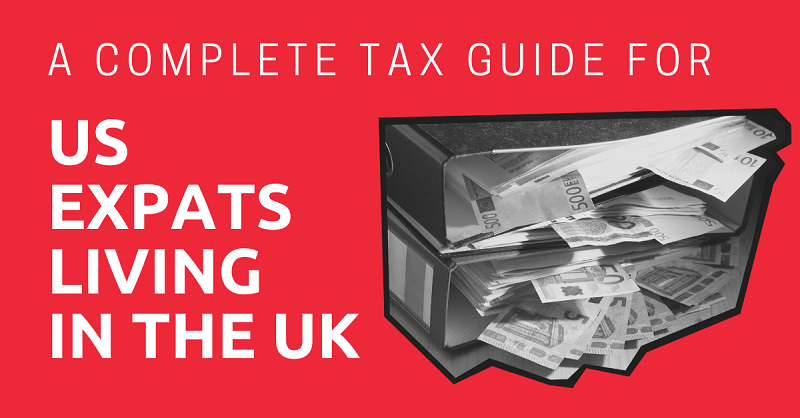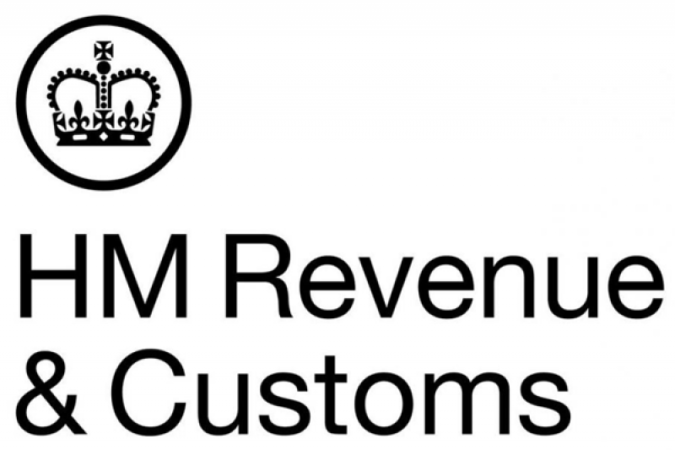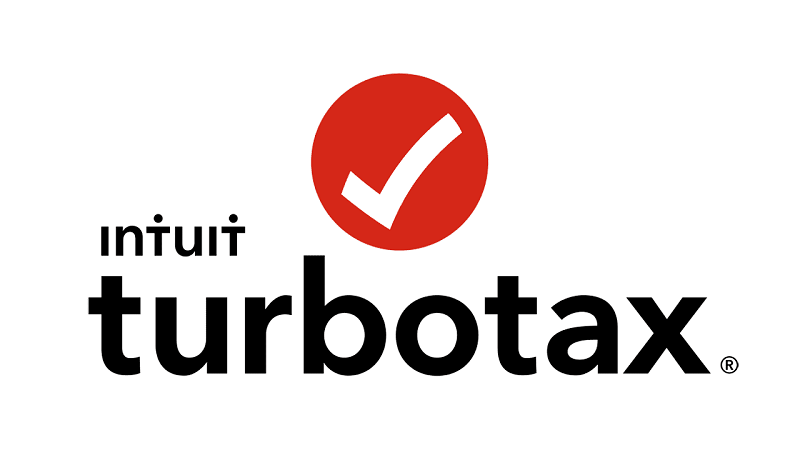
You’ve moved, either because of your job or for other reasons, and have made your home in the U.K.
Now you are trying to work out if, as an American citizen, you have to pay taxes in the U.K., and because you no longer live in the USA, if you have to pay taxes to the IRS.
As an American citizen or permanent resident (green card holder), each year you are required to file a U.S. federal tax return and pay taxes on your income regardless of where that income comes from or where you live.
We have compiled this guide to explain the U.K. tax system so you can determine whether you will pay taxes in both the U.K. and the U.S., and if so, which forms you should use to file your taxes.
This article will take approximately 29 minutes to read. Don't have the time right now? No worries. You can email the ad-free version of the article to yourself and read it later!
Disclaimer: This article may include links to products or services offered by ExpatDen’s partners, which give us commissions when you click on them. Although this may influence how they appear in the text, we only recommend solutions that we would use in your situation. Read more in our Advertising Disclosure.
Contents
UK Tax System
The U.K. tax system isn’t the easiest to explain, but you should know that there are various taxes that you may come across during your time in the country.
These include income tax, property taxes, U.K. inheritance tax, and value-added tax.
All taxes administered and collected in the U.K. are the responsibility of HM Revenue and Customs (HMRC).
The U.K. fiscal structure is common throughout the whole country — England, Wales, Northern Ireland, many of the smaller islands scattered around the U.K. coast, and Scotland — but with some specific variations due to its unique legal system.

It also includes any drilling platforms located in British territorial waters. Notably, however, it excludes the Channel Islands and the Isle of Man.
As an American citizen, one characteristic of the U.K. tax system that you may find strange is that there is no “married filing jointly” classification. Spouses are treated as individuals and taxed accordingly.
Also, the tax year in the U.K. is from 6 April to 5 April, unlike the U.S. tax year, which is 1 January to 31December.
Income Taxes
Income tax is a progressive tax, which means the more you earn the higher your tax rate will be.
All income that is earned in the U.K. is taxable. This includes benefits, pensions, and interest on savings. The amount of taxable income is anything over your personal allowance.
A National Insurance (NI) number is needed before you can pay taxes in the U.K. This is the British equivalent of your social security number, and it is a legal requirement to obtain a NI number if you are intending to work in the U.K.
To obtain a NI number, you can contact the Jobcenter Plus NI Allocation Service Helpline at 0845-600-0643, who will help you through the process.
Moreover, you will have to attend an “Evidence of Identity” interview to prove you are who you say you are.
Paying UK Income Taxes
Different persons have different ways of paying U.K. income tax, depending on your status.
Employees
If you are an employee, then your employer automatically deducts income taxes from your wages via the Pay As You Earn (PAYE) system.
The amount of tax deducted depends on your personal allowance and tax code.
Self-Employed
If you are self-employed, then it is your responsibility to calculate your tax liability and complete a self-assessment tax form.
If you have income from sources not considered employment, then this too must be reported on your self-assessment tax form and sent to the HMRC.
If you are treated as a U.K. resident for tax purposes, you may also have to pay U.K. income tax on foreign income.
If you have rental income from a U.S. property, this will be subject to U.K. income tax, as will pensions from overseas and interest from foreign bank accounts.
Property Taxes
When you buy a home in England or Northern Ireland, depending on the purchase price, you may have to pay Stamp Duty Land Tax (SDLT). Any property valued at more than GBP125,000 is subject to SDLT.
Properties valued at more than GBP125,001 but less than GBP250,000 will be subject to 2 percent. A further 5 percent is due on the amount between GBP250,001 and GBP925,000.
Above GBP925,000 but less than GBP1.5 million, 10 percent SDLT is due, and over GBP1.5 million you will pay 12 percent.
First-time buyers get a better deal, as there is no tax due on properties valued below GBP300,001, however, 5 percent tax is due if the property is above GBP300,001 but less than GBP500,000.
Anything above and you will pay tax at the same rate as everyone else.
You must complete an SDLT return and send it to the HMRC along with the tax within 14 days of closing on the property.
Sales Tax (VAT)
Value-added tax (VAT) is applied to most goods and services sold in the U.K.
Unlike sales tax in the U.S., where the article you are buying has the tax added to the price, in the UK VAT is included in the displayed price.
The standard rate of VAT is 20 percent, although there are some goods and services that have a reduced rate of 5 percent, and food and children’s clothing has a 0 percent tax rate.
Domicile or Non-Domicile
Domicile is defined as the country in which you have a permanent home or have a long-standing connection.
If you are living in the U.K. but still retain a permanent connection with the U.S., then you are classed as a resident but non-domicile for tax purposes.
However, during the last 20 tax years, if you have lived in the U.K. for 15 of those years, then you are classed as a U.K. domicile as far as income and capital gains tax are concerned.
Being classed both as a resident and U.K. domicile means that in the U.K. you are taxed on your worldwide income.
Non-domiciled residents, (those “residents” who have not lived in the U.K. for the 15-year qualifying period), have the option to be taxed on “remittance basis,” which means you are not taxed on foreign income and capital gains if those funds are not remitted or brought into the U.K.
In both cases, a U.K. tax return must be completed, and any income tax that you owe, paid to the HMRC.
Resident or Non-Resident
To be classed as a U.K. resident, for tax purposes you must meet one of the following criteria:
- You stay in the U.K. for a minimum of 183 days during a tax year.
- Your main residence is in the U.K., and you have lived, owned, or rented for at least 91 days (including thirty days in the current tax year).
- You have worked full-time in the U.K. without a break of 31 days or more in any period of 365 days. At least 274 days out of the 365 days must be in the current tax year.
If you do not meet one of the above criteria, then you will be classed as a non-resident for tax purposes.
Resident
If you are classed as a resident of the U.K., then you will be taxed on your worldwide income, the same as you are taxed in the U.S., but there are provisions in place to prevent you from being taxed twice.
If you are employed, then you will be issued a tax code. This will be somewhat confusing to begin with, but everyone in the U.K. who pays income tax has a tax code, made up of numbers and a letter.
The tax code most employees have is 1257L, which is given to people who have one job, no untaxable income, unpaid tax, or taxable benefits, such as a company car. Which, by the way, is taxable.

If you get issued with a tax code of 1257L then you can earn GBP12,570 a year before paying any income tax. As an example, if you earn GBP30,000, then the amount you pay tax on is GBP17,430.
From the tax rates illustrated below, up to GBP12,570 the tax rate is 0 percent, from GBP12,571 to GBP50,270, the tax rate is 20 percent. Your taxable income is GBP17,430, taxed at 20 percent, therefore the income tax due is GBP3,486.
If you have other income, for example, which makes your worldwide annual income GBP100,000, then the calculations would be:
- Gross Income – GBP100,000.00
- Personal Allowance – GBP12,570.00
- Basic Rate Tax at 20 percent is GBP7,540.00
- Higher Rate Tax at 40 percent is GBP19,892.00
- Total income tax deducted – GBP27,432.00
Various other tax codes are issued, and your employer or tax professional will explain the significance.
Also during any tax year, tax codes can be changed by the U.K. Government, and your tax-free income will be automatically adjusted.
Non-Resident
As a non-resident, you are not taxed on foreign income. You are only taxed on income generated in the UK like wages, which will have income tax deducted under the PAYE system.
If you have other UK generated income from investments, or rental income for example, you will be required to file a self-assessment tax return and pay any income tax owed to the HMRC. The same tax bands, allowances, tax rates and calculations apply to non-residents.
How Much Tax You Need to Pay
The amount of income tax you will pay in the U.K. depends on various things.
Everyone who works or earns any kind of income will normally pay U.K. income tax. Income tax is collected in several ways, including:
- Pay-as-you-earn (PAYE) for salaried employees and hourly-paid workers.
- Self-assessment tax return, usually for independent professionals or freelance workers.
- Deducted at source, when a financial institution will deduct tax from any interest earned before paying you.
UK Income Tax Rates
Regardless of your residency status, the amount of income tax you will pay is a progressive rate based on your total taxable income after any personal allowances.
For the tax year 2021 to 2022 the tax rate bands are:
| Tax Band | Taxable Income | Income Tax Rate |
| Personal allowance | < GBP12,570 | 0 percent |
| Basic rate | GBP12,571–50,270 | 20 percent |
| Higher rate | GBP50,271–150,000 | 40 percent |
| Additional rate | GBP150,001> | 45 percent |
National Insurance (NI) Contributions
In addition to income tax, most people who work in the U.K. will have NI contributions deducted from their wages.
NI contributions are taxes paid by both U.K. employees and employers and are used to fund U.K. government benefits, such as state pensions.
NI contributions are similar to the FICA withholding in the U.S.
The amount deducted is governed by the amount earned over the threshold of GBP9,568 per year. Above this figure, you will pay 12 percent of your earnings up to GBP50,270, and 2 percent on anything above GBP50,270.
You can find out more on the U.K. national insurance through our health insurance in the U.K. article.
Income from a Foreign Country
If you are living and working in the U.K. but are receiving income from abroad, for example, rental income from your U.S. property, then you will need to pay U.K. income tax on those earnings.
You will usually accomplish this by completing a self-assessment tax return.
This only applies to “resident” taxpayers. Non-resident taxpayers do not have to pay tax on foreign income.
There is a possibility that you may get taxed on your foreign income by the U.K. and also by the country of origin. You can normally get some or all tax back by claiming tax relief.
When are UK Tax Returns Due?
The majority of taxpayers in the U.K. pay their income tax through the PAYE system.
Income tax and NI contributions are deducted by employers and pension providers prior to paying wages or pensions.
If, however, your circumstances are such that you fall into any of the following categories, you may need to file a self-assessment tax return.
- You are self-employed earning over GBP1,000 per year
- You are a partner in a business
- Your taxable income exceeds GBP100,000
- You receive GPB2,500 or more in untaxed income from other sources
You will have to register for self-assessment and the deadline for registration for any tax year is 5 October of the following year.
For example, if you need to register for the tax year 2020 to 2021, then you have until 5 October 2021.
Your self-assessment tax return must be filed by 31 October 2021 if you are filing a paper return, or if you file online, you have until 31 January 2022.
Moreover, 31 January is the deadline to pay any income tax you owe.
IMPORTANT NOTE: Missing tax deadlines incur penalties and interest.
How to File UK Taxes
If you need to file a self-assessment tax return, you have a choice. You can complete a paper return by downloading and completing the SA100 form or you can file online.
Filing online allows you to check various details like previous tax returns and your personal details, and it lets you print out your tax calculations.
If you are filing for the first time, you will have to enroll to use the online service, using your unique taxpayer reference (UTR) and the code sent to you through the mail to activate the service.
Your UTR is automatically sent to you when your register for self-assessment.
Tax Forms
In addition to the SA100 self-assessment tax form, you may be required to complete various other forms depending on your situation — known as supplementary pages — when you make declarations about U.K. income tax.
These forms include:
- company directors or employees: SA102
- self-employed: SA103S or SA103F
- partnerships: SA104S or SA104F
- income from U.K. property: SA105
- foreign income: SA106
- capital gains: SA108
- U.K. non-residents or dual-residents: SA109
Filing US Taxes from the UK
Any U.S. citizen living and working in the U.K. is usually subjected to the same rules as U.S. residents when it comes to income taxes.
This is because the tax system in the U.S. requires every U.S. citizen to report their worldwide income regardless of where they live.
So when you live and work in the U.K. you still need to file your U.S. tax returns.
Some Americans living abroad are under the impression that they do not have to file U.S. taxes, but unfortunately, they are mistaken.

A U.S. tax return must be filed each year by 15 April, but if you live outside the U.S., you are granted an automatic extension to 15 June 15. The IRS will also give you an extension to 15 October if you file for the extension by the normal filing due date.
Although you need to report your worldwide income on your U.S. tax return, it doesn’t mean you will have to pay any U.S. income tax.
You can file U.S. tax from the U.K. easily using a tax filing software such as TurboTax.
Foreign Tax Credit
Foreign tax credit (FTC) is one of the ways for U.S. citizens to reduce or eliminate their tax liability on income they have earned while living and working in the U.K.
Since you are living and working in the U.K., you will have paid income tax on your earnings. The foreign tax credit can reduce any tax owed to the IRS dollar-for-dollar for the income tax you paid to the U.K. taxman.
As an example, you are about to file your 2020 U.S. tax returns. You received the equivalent of USD100,000 from your U.K. employment. In this example, let’s say you owe USD35,000 in U.S. federal income tax on that amount. However, you paid the equivalent of USD40,000 in U.K. taxes.
Because you paid USD40,000 in U.K. taxes, you can make use of USD35,000 of this in FTC, reducing your U.S. income tax liability from USD35,000 to USD0.
You must complete IRS Form 1116 and file it along with your federal tax returns. The form itself is not complicated, but the information required can be a bit confusing.
For example, the amount of tax paid in the foreign country has to be recorded in the currency of that country and also shown in U.S. Dollars.
To assist you with that conversion, which should be “historical” and not “today’s” exchange rate, this website is an excellent source for accurate currency conversions.
You are required to include an explanation of the currency conversion calculations, so if you want to be fairly accurate with the calculations, you could take each wage slip and convert the amount of tax paid using the convertor set to the date you were paid.
Or, at the end of the year, take the total amount of tax paid and convert it using the 31 December conversion date.
Whichever method you decide to use, remember to include a detailed explanation with your tax return.
Foreign-Earned Income Exclusion (FEIE)
Foreign-earned income exclusion (FEIE) allows you to exclude some or all of your foreign earned income from being taxed by the IRS.
To claim FEIE you need to complete and file Form 2555. The FEIE will reduce your taxable income, lowering your tax bill or even eliminating it altogether.
For the 2020 tax year, the maximum amount allowed to be excluded is USD107,600. The income exclusion means the first USD107,600 of any foreign income is excluded from taxable income.
Any foreign income above that figure would be classed as taxable income and taxed accordingly.
If we use a similar example to the one above, you are about to file your 2020 U.S. tax returns and you file as “single status.” You received the equivalent of USD135,000 from your U.K. employment. In this example, let’s say you owe USD40,000 in federal income taxes on that amount. However, on your U.K. wages, you paid USD45,000 in U.K. taxes.
Taking the USD135,000 you received in U.K. wages, USD107,600 is excluded from your taxable income, leaving USD27,400 as taxable income.
Since your filing status is “single” you claim the standard deduction of USD12,400, resulting in an adjusted taxable income of USD15,000, and not the USD135,000 you received in U.K. income.
Since you paid USD45,000 in U.K. taxes, you can still claim foreign tax credit reducing your U.S. income tax liability to USD0.
Foreign Bank Account Report (FBAR)
Living and working in the U.K. means you will need to open a bank account in the U.K.
Most U.K. banks insist that anyone opening an account be a resident and be able to provide proof of address and identity.
Your passport will be accepted as proof of identity, and for proof of address, you can provide a payslip, utility bill, or some other document that shows your U.K. address.
Having a U.K. bank account brings with it another headache for U.S. citizens, the Foreign Bank Account Report (FBAR).
If the total balance of your non-U.S. bank accounts exceeds USD10,000 at any time during the calendar year you are required to file a FBAR (FinCEN Form 114).
Even if your checking account had a balance of USD10,001.00 for a day during the year, you must report it to avoid serious penalties.

The report is filed with FinCEN, (Financial Crimes Enforcement Network) which is a division of the U.S. Treasury Department, and you must file the report by 15 June, the same due date as your U.S. tax returns.
Like the FATCA (covered in the next section) the FBAR has similar penalties for failing to file, if you forget to file the FBAR by the due date, you could face heavy fines and penalties.
As a U.S. citizen living in the U.K., you have an automatic extension to 15 October for the FBAR.
If you have met the filing requirements as stated above, and fail to file an FBAR, the fine that could be imposed on you can be USD124,588 or 50 percent of your foreign bank accounts total, whichever is the greater.
To help you stay compliant and avoid any tax penalties, either in the U.S. or the U.K., keep records to back up any documents you file.
The documents you should keep for a minimum of three years include:
- payslips/pay stubs
- prior years U.S. tax returns
- previous U.K. self-assessment tax forms
- your U.S. W-2s or any U.K. P-60s
- details of foreign income taxes paid
- foreign housing expenses
- mortgage interest paid
- health or medical insurance costs
- proof of the time you are resident in the U.K.
- any student principal and interest payments
These are only some of the documents you should keep handy when it is time to file your taxes, but remember the U.S. and the U.K. have different tax calendars.
The U.S. is 1 Jan to 31 Dec, while the U.K. is 6 April to 5 April.
Foreign Account Tax Compliance Act (FATCA)
The Foreign Account Tax Compliance Act (FATCA) was established to prevent money and assets from being hidden offshore from the IRS.
As a result, every U.S. citizen is required to disclose particular assets that exceed certain thresholds.
On top of individuals having to file a report, foreign banking and financial institutions are also required to file FATCA reports on U.S. clients’ assets if they wish to avoid having 30 percent of certain payments they receive from the U.S. being withheld.
The thresholds for reporting your bank accounts and other assets if you are living and working in the U.K. are:
- Single taxpayer – USD200,000 on 31 December or USD300,000 at any time during the year.
- Married taxpayer – USD400,000 on 31 December or USD600,000 at any time during the year.
While bank accounts are easy to identify, your other assets that need to be reported can be more difficult.
According to the IRS assets, they are defined as:
- foreign pensions
- foreign stockholdings
- foreign partnership interests
- foreign financial accounts
- foreign mutual funds
- foreign issued life insurance
- foreign hedge funds
- foreign real estate held through a foreign entity (you don’t need to report the real estate, but the foreign entity itself is a specified foreign financial asset and its maximum value includes the value of the real estate)
Your foreign home does not need to be reported.
It would be wise to consult with a tax professional who has experience in FATCA reporting to ensure you do not make any mistakes, because failing to file and file correctly will incur penalties.
Again, according to the IRS:
“Penalties for failing to file are USD10,000 per violation, plus an additional penalty of up to USD50,000 for continued failure to file after IRS notification, and a 40 percent penalty on any understatement of tax attributable to non-disclosed assets.”
Being proactive when you live and work in the U.K. and you may fall under the FATCA umbrella might be something you didn’t bargain for, but staying compliant will save you heartache and dollars in the long run.
Tax Filing Options
You’ve managed to navigate your way through the virtual minefield of U.K. income tax self-assessment forms and have filed your U.K. tax return on time and paid over the tax you owed.
Now you can concentrate on getting your U.S. tax return completed and filed with the IRS before any automatic extension deadline expires. But remember, any tax that is due to the IRS must be paid by 15 April or interest will be charged.
The choices you have for filing your U.S. tax returns are:
- mailing your return to the IRS
- using an online/e-file service
- consulting a tax professional to prepare and file on your behalf
Let’s look at each one more closely.
Mailing Your Returns to the IRS
You have been keeping accurate records of income and expenses, copies of bank statements are available for backup, 1099s and 1098s are all there, along with all the other numerous pieces of paper that you need to file your IRS form 1040.
Examples of paperwork you need to complete your tax return include:
- Last year’s tax return. It will contain information that you can carry over from last year to this year.
- Any records of real estate sales or purchases, which contain dates, whether it was personal or business-related, total costs, and any proceeds.
- A detailed list of expenses including any reasonably incurred expenses for foreign housing. (If you qualify for Foreign Earned Income Exclusion, then foreign housing expenses can add to your deductions).
- Names and addresses of all your financial institutions, along with account numbers, highest account balances, and end-of-year balances, in case you meet the FBAR reporting requirements.
With all that information needed to fully complete your U.S. federal tax returns, the big question is: Do you feel confident enough to complete your tax returns by yourself?
You can download form 1040 from the IRS website, but do you need to get form 1116 (Foreign Tax Credit) or form 2555 (Foreign Earned Income)?
What about Schedule A (Itemized Deductions), Schedule B (Interest & Ordinary Dividends), Schedule C (Profit & Loss from self-employed business), Schedule D (Capital Gains and Losses), K-1s?
Do you need any of these?
Plus, you must file a FBAR and perhaps a FATCA report.
If you are able to complete all these forms, bearing in mind that you cannot afford to omit any information or forget to complete any forms if you want to avoid harsh penalties and fines, then you can mail the complete tax return package to:
Department of the Treasury
Internal Revenue Service Center
Austin, TX 73301-0215
USA
Tax Filing Software
Depending on your annual income, the IRS offers two options to file your taxes, for free.
If your income is below USD72,000, then you can choose an IRS Free File Offer. There are nine IRS free file offers to choose from, and most, if not all, cater to expat’s tax returns.
Explore each of the offers to check that your circumstances are catered for before you make a decision.
These programs are completely safe and they all have special offers which you may qualify for.
Some offer free state return filings, while others have restrictions on which states are covered. If your home state is not on the list, and you need to file a state return, then you will be charged for filing.
If your income is greater than USD72,000, you can use the IRS free fillable forms and submit your return securely online. This service has a deadline of 21 Oct — after which you cannot access it.
The IRS free fillable forms service does have a few restrictions, such as:
- no guidance as to which forms you need to complete
- calculations that are very basic with no error-checking
- current tax year filing options only
- no state tax return option
- inability to make changes once filed
Alternatively, you can use a paid tax filing software.
There are many to choose from, but before you decide on which one to engage, you need to look carefully at their websites, contact them if necessary, and ask about all the forms that their software does and doesn’t handle.
For example, ask if their software can handle Form 1116 (Foreign Tax Credit) or Form 2555 (Foreign Earned Income).
One popular online tax service, Credit Karma Tax, caters to expats, but unfortunately does not support these two forms.
Without being able to complete these two forms, your tax return will be incomplete, and you may have wasted your valuable time.
As with any online service, check to see if all the forms you need are listed and available.

TurboTax is a popular tax preparation service and has various versions of their software to help you prepare and file your U.S. tax returns from the U.K.
It caters for all the necessary forms needed for filing, and the different versions are priced from USD60 for their deluxe “Do It Yourself” version up to USD290 for their “Full Service” self-employed version.
If you are not confident about preparing your taxes yourself, you have an option to use a tax expert or CPA to ensure your taxes are prepared accurately.
One important feature of this service is that they work according to your schedule, and before they file anything on your behalf, they will provide you with a summary of your taxes.
They also guarantee that your taxes will be done right, and should you incur an IRS penalty because of a mistake they made, then they will reimburse you.
H&R Block, whom you will have heard of, is another popular online tax filing services that can handle all situations.
Their list of forms that are usually needed for U.S. expats to file their federal tax returns is extensive, including Form 1116, Form 2555, Form 114a (FBAR), and Form 8968 (FATCA) — if required.
To use their service, which costs USD99 for individuals (extra charges may apply for an FBAR), you first must create an account with a user name and password, then answer a questionnaire.
The software will guide you through the tax return line by line, and every form that is needed, like Form 1040 Schedule A (Itemized deductions), will be completed.
Every taxpayer’s situation is unique, and the H&R Block e-file service is one of the few that will produce your tax returns efficiently and smoothly.
Contact a US/UK Tax Professional
When filing U.S. taxes from abroad, you can use a use a tax company that caters to U.S. expats such as 1040 Abroad or tax firms in the U.K. such as Ingleton Partners.
Before using a tax service, be sure you are going to be compliant with all the tax laws, both in the U.S. and the U.K.
It is wise to search for a company that states their experience and qualifications on their website.
Phrases to look for include:
- qualified U.K. and U.S. tax accountants
- help with preparing U.S. tax returns
- chartered tax adviser
The word “Chartered” is the U.K.’s equivalent of “Certified,” as in Certified Public Accountant.
Now, on to You
Although you can file both U.S. and U.K. taxes by yourself, either manually or by using commercially available tax software, it may be advisable to engage the services of a tax professional to guide you through the minefield of rules, regulations, and forms.
Choose one with experience in both country’s tax laws to avoid any costly errors.
Whichever option you decide to use, keep in mind there are tax deadlines that you must adhere to in order to avoid fees, interest, and penalties — some of which can be huge.
We hope this guide to U.K. tax for U.S. citizens living in the country has given you some food for thought.







